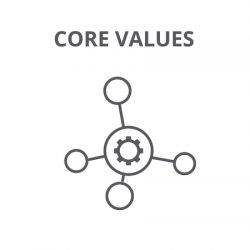March 7, 2018
Google is the gold standard employer in UK tech sector but small brands can still compete
 Google has been named the Ideal Employer among tech professionals in the 2018 Dice UK Ideal Employer Report. While market leaders including Microsoft, Apple, Amazon, Facebook and IBM are placed highly, the report suggests that smaller tech brands can also attract the top talent through benefits including yoga, in-house cafeterias and more. For many technology professionals, Google is the gold standard employer, with a perfect mix of competitive salary, perks, benefits and interesting work, something smaller companies can learn from. The survey of 464 tech professionals found that simple office upgrades including yoga, colourful furniture and other positive innovative cultural perks can help smaller companies attract the best talent, even if smaller in size. Good work/life balances, open communications and manageable working hours also ranked highly. (more…)
Google has been named the Ideal Employer among tech professionals in the 2018 Dice UK Ideal Employer Report. While market leaders including Microsoft, Apple, Amazon, Facebook and IBM are placed highly, the report suggests that smaller tech brands can also attract the top talent through benefits including yoga, in-house cafeterias and more. For many technology professionals, Google is the gold standard employer, with a perfect mix of competitive salary, perks, benefits and interesting work, something smaller companies can learn from. The survey of 464 tech professionals found that simple office upgrades including yoga, colourful furniture and other positive innovative cultural perks can help smaller companies attract the best talent, even if smaller in size. Good work/life balances, open communications and manageable working hours also ranked highly. (more…)



















 In a workplace dominated by insecurity, gig work and intelligent machines we need to improve our understanding of their potential impact on health, safety and wellbeing claims a new report.
In a workplace dominated by insecurity, gig work and intelligent machines we need to improve our understanding of their potential impact on health, safety and wellbeing claims a new report. 
 The construction industry needs new talent and skills to help in the adoption of new technologies to meet the challenges of digital transformation. It must also become more diverse, including increasing the percentage of women in the industry. These are the recommendations of a new report from the World Economic Forum, developed in collaboration with The Boston Consulting Group (BCG), Shaping the Future of Construction: An Action Plan to solve the Industry’s Talent Gap. The report argues that the Infrastructure and Urban Development (IU) industry has failed to innovate as quickly as other sectors, resulting in stagnating productivity and negative effects on the economy, society and the environment. An ongoing industry-wide shortage of qualified workers is among the key reasons for this issue. It has undermined project management and execution, adversely affecting cost, timelines and quality. It also has impeded the adoption of new digital technologies, such as building information modelling (BIM), automated equipment and cloud-based collaboration tools, which could improve productivity. The report provides twelve key actions which needs to be implemented to close the structural talent gap of the construction industry.
The construction industry needs new talent and skills to help in the adoption of new technologies to meet the challenges of digital transformation. It must also become more diverse, including increasing the percentage of women in the industry. These are the recommendations of a new report from the World Economic Forum, developed in collaboration with The Boston Consulting Group (BCG), Shaping the Future of Construction: An Action Plan to solve the Industry’s Talent Gap. The report argues that the Infrastructure and Urban Development (IU) industry has failed to innovate as quickly as other sectors, resulting in stagnating productivity and negative effects on the economy, society and the environment. An ongoing industry-wide shortage of qualified workers is among the key reasons for this issue. It has undermined project management and execution, adversely affecting cost, timelines and quality. It also has impeded the adoption of new digital technologies, such as building information modelling (BIM), automated equipment and cloud-based collaboration tools, which could improve productivity. The report provides twelve key actions which needs to be implemented to close the structural talent gap of the construction industry.




 Most people who work in HR now recognise how essential technology is for delivering more strategic value to their organisation, but a new report suggests that HR teams are not prepared to meet the
Most people who work in HR now recognise how essential technology is for delivering more strategic value to their organisation, but a new report suggests that HR teams are not prepared to meet the 








March 6, 2018
How to reboot an activity based working project that has ground to a halt
by Karin Stahl • Comment, Flexible working, Technology, Workplace design